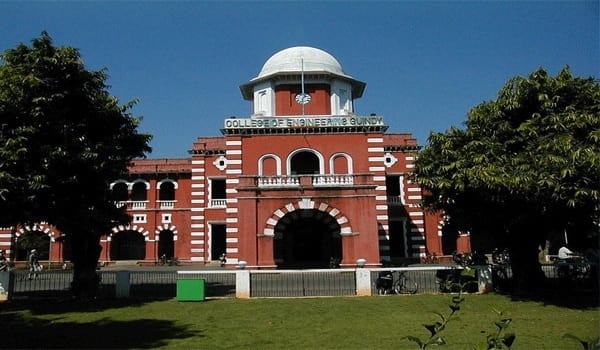South India has long been recognized as a powerhouse of education in India. The region’s rich academic legacy, coupled with its forward-looking approach to curriculum and innovation, has made it one of the most attractive destinations for engineering aspirants. Today, South India is home to several private universities that not only compete with public institutions but in many cases surpass them in terms of infrastructure, industry collaborations, placements, and global outlook.
From Tamil Nadu to Karnataka and Kerala, these universities have created ecosystems where students gain technical expertise while also developing leadership, research, and entrepreneurial skills. Among them, VIT Vellore and SRM University Chennai are standout names, consistently topping student preference lists for their academic diversity and strong placement records. Alongside them, institutions like Amrita Vishwa Vidyapeetham, PSG College of Technology Coimbatore, and RV College of Engineering Bangalore have also strengthened South India’s reputation as a leader in private engineering education.
VIT Vellore: A Benchmark in Private Engineering
Founded in 1984, VIT Vellore has emerged as one of India’s top private engineering universities, attracting thousands of aspirants each year. Many students start by checking vit vellore fees, which remain competitive considering the exposure and facilities offered. The university provides a wide range of programs, and the popular vit vellore courses list includes both core fields like mechanical and electrical engineering as well as emerging areas such as artificial intelligence, nanotechnology, and biomedical engineering. With a flexible credit-based curriculum, international collaborations with 300+ institutions, and a strong placement record, VIT ensures academic growth, global exposure, and industry-ready skills for its students.
SRM University Chennai: Innovation Meets Flexibility
SRM University Chennai (SRM Institute of Science and Technology) is a leading choice in South India, recognized for its world-class infrastructure, diverse academic programs, and flexible learning options. Many aspirants look into srm university fees and the detailed process of srm institute of science and technology course admissions while planning their academic journey. With a strong emphasis on research, innovation hubs, and industry tie-ups, SRM ensures students gain practical exposure throughout their studies, while its robust placement ecosystem and international collaborations open up opportunities with top recruiters and higher education institutions abroad.
Other Reputed Private Institutions in South India
While VIT and SRM dominate the conversation, South India’s educational landscape is also shaped by several other reputable names:
- Amrita Vishwa Vidyapeetham (Coimbatore) – Known for its research-oriented programs and strong collaborations with global universities, Amrita offers students a unique mix of academic excellence and social impact. The institution emphasizes humanitarian projects, sustainable technologies, and industry-driven research. Its multi-disciplinary programs in engineering, medicine, and management provide students with a holistic education, while global tie-ups create opportunities for exchange programs and joint research.
- PSG College of Technology (Coimbatore) – A legacy institution established in 1951, PSG Tech is well-regarded for its strong foundation in mechanical, civil, and allied engineering disciplines. The college has produced a robust alumni network spread across top industries and leadership roles worldwide. With state-of-the-art laboratories, industry partnerships, and innovation-driven teaching methods, PSG Tech continues to be a preferred choice for engineering aspirants. Its focus on entrepreneurship and applied research strengthens its academic ecosystem.
- RV College of Engineering (Bangalore) – One of Karnataka’s most respected engineering institutions, RVCE is known for academic rigor, modern infrastructure, and consistently strong placement records. The college emphasizes innovation, interdisciplinary projects, and entrepreneurial initiatives, preparing students to excel in both corporate and startup environments. Its vibrant campus culture, industry-linked programs, and collaborations with reputed organizations ensure that students graduate with practical skills and global exposure.
- Manipal Institute of Technology (Karnataka) – A pioneering institution with a strong global outlook, MIT Manipal is renowned for its diverse programs and interdisciplinary approach. The institute encourages research-driven learning, innovation labs, and industry collaborations that shape students into future-ready professionals. With a cosmopolitan campus environment, global tie-ups, and strong placement opportunities, MIT provides a balanced mix of academic excellence, international exposure, and career growth pathways for its students.
These institutions, along with VIT and SRM, together form the backbone of South India’s engineering education ecosystem. Each has carved out a niche, ensuring that students have options based on their career goals, financial considerations, and academic interests
Why Students Prefer South Indian Private Engineering Colleges
Several factors explain why South India remains such a sought-after hub for private engineering education:
- Industry Linkages: Proximity to IT corridors like Bengaluru, Hyderabad, and Chennai ensures excellent internship and placement opportunities.
- Global Exposure: Universities here actively encourage student exchange programs, joint research, and international collaborations.
- Holistic Development: Beyond academics, emphasis is placed on leadership training, entrepreneurship, and innovation culture.
- Transparent Fee Structures: Whether checking vit vellore fees or exploring srm university fees, students find clarity and predictability in financial planning.
- Vibrant Campus Life: State-of-the-art facilities, diverse student communities, and extracurricular activities add to the overall learning experience.
Conclusion
South India’s private engineering colleges continue to set benchmarks in higher education, offering students a blend of academic excellence, innovation, and global exposure. These institutions are recognized for their structured fee systems, wide-ranging course options, strong placement opportunities, and international collaborations. For aspiring engineers, choosing the right college is more than just comparing numbers—it is about selecting a pathway that will define their academic journey and career growth. With their consistent focus on quality, research, and industry readiness, South Indian universities remain a hub for future-ready education.


